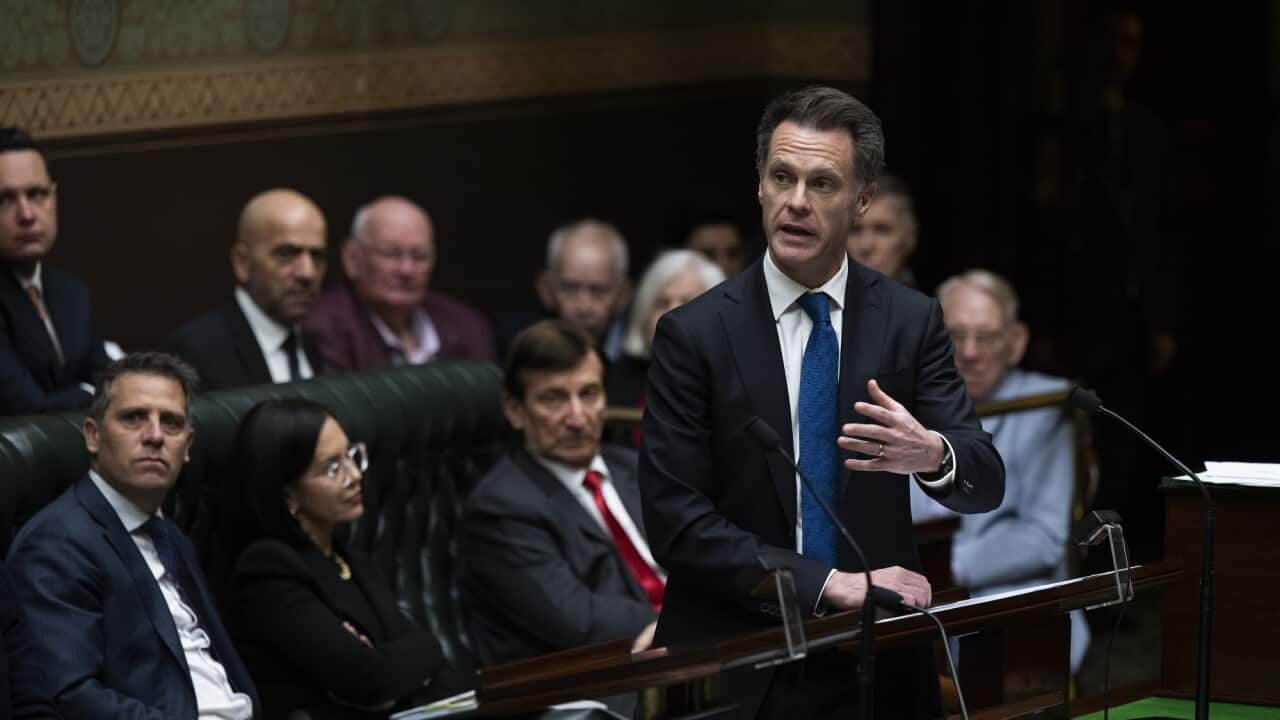TRANSCRIPT
A historic moment. The Premier of New South Wales delivers a formal apology for laws that criminalised consensual sex between gay men.
The criminal offence carried a 14-year penalty, before it was abolished in 1984.
However, it was not until November 2014 before the criminal convictions were expunged.
Now almost a decade later, Premier Chris Minns has addressed the parliament, saying a great wrong was committed.
"We're here to apologiSe for every life that was damaged or diminished or destroyed by these unjust laws. To those who survived these terrible years; and to those who never made it through - we are truly sorry. We're sorry for every person convicted under legislation that should never have existed. For every person who experienced fear as a result of that legislation. Everyone who lost a job, who lost their future, or who lost the love of family and friends. We are very sorry for every person convicted or otherwise who were made to live a smaller life because of these laws. People who reached the end of their days without ever voicing who they really were; without ever experiencing the greatest of human joys, which is the joy of love. We are sorry, and as a state, we told you you were wrong, but the truth is you were never wrong. These laws were wrong. Today we can openly acknowledge that truth."
New South Wales is the last state to issue an apology to those affected by historical laws that criminalised homosexuality.
Victoria and South Australia apologised in 2016. A year later, they were followed by Queensland, Western Australia, and Tasmania.
Mr Minns says the government recognises there is still more to do to rebuild relationships with members of the LGBTIQ+ community.
"Decisions that criminalised, persecuted and harmed people based on their sexuality and gender. (Our apology) recognises the trauma people of diverse sexualities their families and loved ones have endured and continue to live with. And lastly, acknowledges that there is still much more work to do to ensure the equal rights of all members of the LGBTQIA-plus community."
State Opposition Leader Mark Speakman says there is bipartisan support for the apology.
"We can't move our state forward through division and disregard for people's views. So today, this parliament apologises to those whose lives were criminalised. To those who were persecuted, to those who were harmed, and to those who were convicted because laws were discriminatory. For all the pain, the hurt, the trauma caused by these laws; and we acknowledge the discrimination stigmatisation and pain suffered by LGBTQI-plus people. On behalf of the opposition for those who suffered as a result of these bad laws, I hope that today's apology helps you heal."
The only openly gay member of the state's lower house, independent MP Alex Greenwich, says he welcomes the apology - but it really shouldn't have taken 40 years after the time when the state decriminalised gay sex.
He says it is important to tackle ongoing discrimination.
"In hearing the stories of those who were impacted by the criminalisation of homosexuality 40 years ago, they are eerily similar to the stories I hear today from my community. When you have laws that discriminate against you, when you have laws that prevent you from doing your job, when you have laws that deny you access to proper identity, it has a real impact on your health and wellbeing. And just as gay men experienced that over 40 years ago, particularly the trans community in New South Wales experiences that today."
He urged the state government to back a bill he has introduced to parliament to protect the rights of LGBTIQ+ people, such as guarding gay teachers from being fired from their jobs due to their sexuality.
"The main thing is 40 years on from decriminalisation, let's finally remove discrimination that impacts the lives, health, wellbeing, and safety of the LGBT community. It's also critically important that the New South Wales government acts with greater speed to respond to the Sackar inquiry, into the Special Commission of hate crimes against the LGBT community. These are important recommendations which go to community safety, and the response is long overdue."
The New South Wales government is still considering its formal response to the 18-month inquiry - into LGBTIQ hate crimes - headed by Justice John Sackar.
The final report running at almost 3,500 pages in length was handed down in December.
It made 19 recommendations, including mandatory training for police officers about the LGBTIQ+ community and possible investigative bias.
There was also a recommendation for NSW Police to conduct a review of all unsolved homicide case spanning the 40-year period from 1970 to identify cases that could be solved with forensic testing.
Accompanying the formal apology in parliament, was the tabling of a statement signed by 29 LGBTIQ+ community organisations, calling on MPs to resolve the "unfinished business of our times".
Robert Bernard French was a co-convener of the Gay Rights Lobby in the 1980s, which eventually led to the NSW government decriminalising homosexuality in 1984.
He says the apology is an important moment - but it's also bittersweet.
"It fills me with pleasure, but also a bit of sadness that it's almost 40 years too late. So many people have actually died in the interim since we actually got decriminalisation. And it's just a real pity, I think that it's just taken so long. Today, still after all that we went through 40 years ago, that it's still difficult for some young people to come out and to be accepted for their sexuality or their gender identity. I mean, that's a real blight, I think still. And it worries me that we haven't yet actually passed that particular hurdle."
Listeners seeking support can contact Lifeline on 13 11 14 or Fullstop Australia 1800 385 578.













